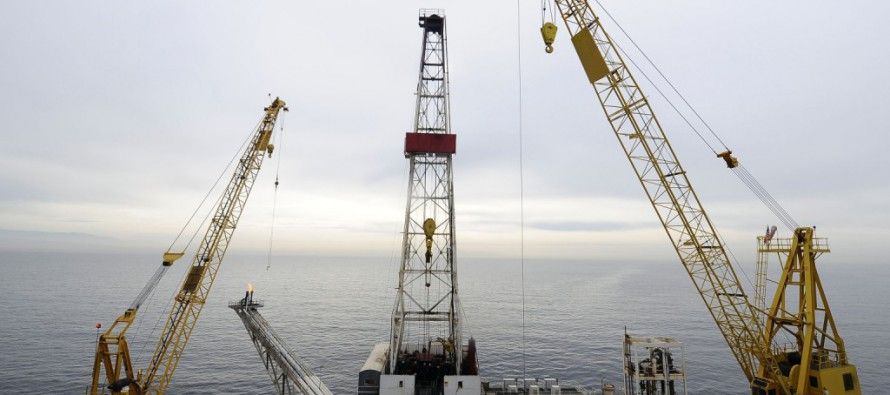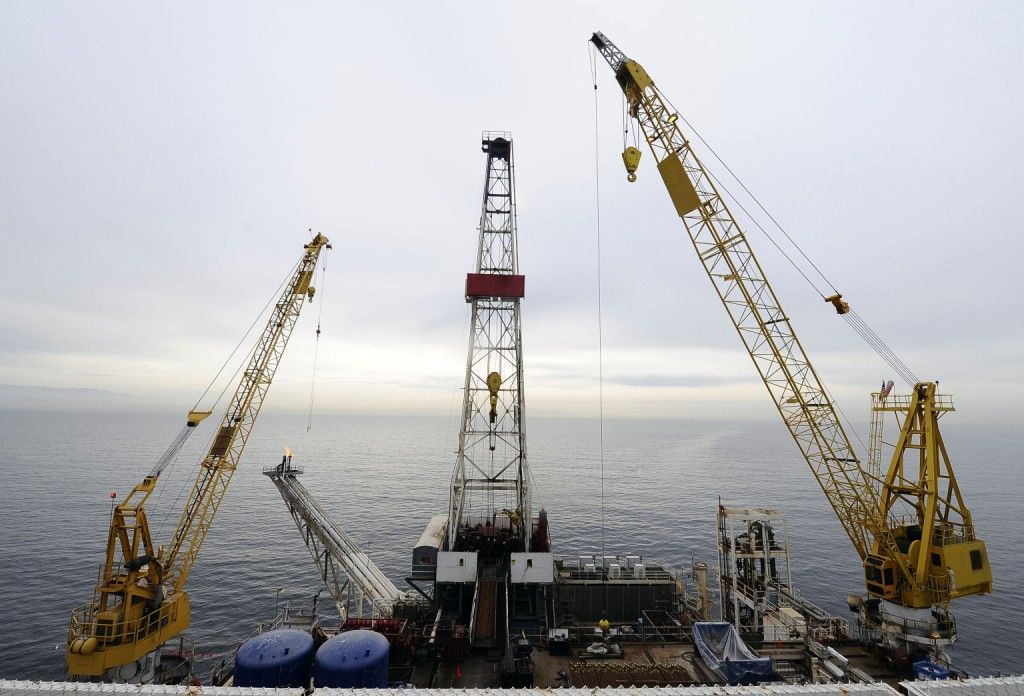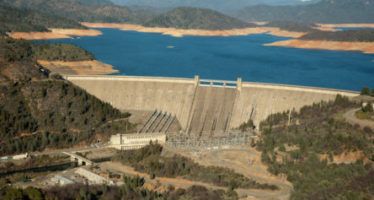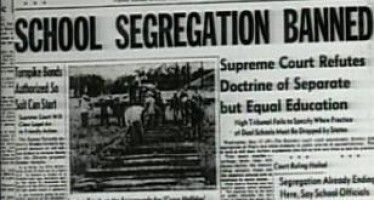Feds freeze offshore CA fracking

 Twin legal settlements with environmentalist plaintiffs put a freeze on fracking in California waters. “The agreements in Los Angeles federal court apply to operations off Ventura and Santa Barbara counties, where companies such as Exxon Mobil Corp. operate platforms,” the Wall Street Journal reported.
Twin legal settlements with environmentalist plaintiffs put a freeze on fracking in California waters. “The agreements in Los Angeles federal court apply to operations off Ventura and Santa Barbara counties, where companies such as Exxon Mobil Corp. operate platforms,” the Wall Street Journal reported.
“Federal agencies will have to complete the review by the end of May and determine if a more in-depth analysis is necessary,” the paper added. “They will also have to make future permit applications publicly accessible.” If the practice clears federal scrutiny and is deemed adequately safe to the environment, fracking operations could continue. If not, they could be postponed or forestalled indefinitely.
Notching a victory
The result marked a significant win for the Center for Biological Diversity and the Environmental Defense Center, two organizations that alleged frackers had imperiled aquatic life with “over 9 billion gallons of wastewater” each year, according to Grist. Accusing the U.S. Department of the Interior of “rubber-stamping fracking off California’s coast without engaging the public or analyzing fracking’s threats to ocean ecosystems, coastal communities and marine life,” as the Christian Science Monitor observed, the groups filed suit against the federal government.
In a report on the deal, the left-leaning think tank Think Progress noted that fracking had quietly been conducted off the California coast for years. “The initial revelation of ongoing offshore fracking came as a result of Freedom of Information Act requests filed with the Department of the Interior by the Associated Press and Santa Barbara-based community organization the Environmental Defense Center, which just released a new report on the issue,” the organization recalled. “The investigations have found over 200 instances of fracking operations in state and federal waters off California, all unbeknownst to a state agency with jurisdiction over the offshore oil and gas industry.”
Industry pushback
For their part, defendants insisted the case was without merit. “Catherine Reheis-Boyd, president of the Western States Petroleum Association, said that the petroleum industry has operated safely in California for decades, working closely with regulators and other officials,” Natural Gas Intelligence reported. Industry defenders have argued that offshore fracking levels in the Pacific haven’t been that high. While the moratorium “will not likely affect production at large because California has not been producing much offshore oil lately,” Reuters noted, “companies have fracked at least 200 wells in Long Beach, Seal Beach, Huntington Beach and in the wildlife-rich Santa Barbara Channel,” according to the Center for Biological Diversity.
The American Petroleum Institute, which joined the suit as a defendant, has refused to agree to the settlement package. Other hurdles to its implementation have arisen. The two separate settlements must still be approved by a federal judge, according to NGI.
Porter Ranch debate
Although the EPA largely exonerated fracking of the dire accusations leveled against it by some environmental activists, the practice has re-entered the public debate in California due to the massive gas leak in the Porter Ranch neighborhood of greater Los Angeles. Maya Golden-Krasner, an attorney for the Center for Biological Diversity, recently linked the disaster to fracking in an editorial at the Sacramento Bee; “newly uncovered documents show that hydraulic fracturing was commonly used in the Aliso Canyon gas storage wells,” she wrote, “including a well less than a half-mile from the leak.” Perhaps predictably, Golden-Krasner called for Gov. Jerry Brown to ban the practice of fracking across the state of California.
Regulators have been investigating a possible connection. “More than two months after Southern California Gas Co. detected a leak at its Aliso Canyon field, observers are searching for reasons the well may have failed. Some environmentalists are drawing attention to fracking, while experts caution that such a rupture is unlikely,” the Los Angeles Daily News observed. “The leaking well’s maintenance records don’t indicate that it was fracked, according to a review of the file released by the state Division of Oil, Gas & Geothermal Resources.”
Related Articles
Sequester cuts likely to remain in place
This week, for the first time since the end of the government shutdown, budget talks between Democrats and Republicans began.
Water war’s new front: Where to add major storage projects
After a 35-year stalemate stalled new California water storage projects, Gov. Jerry Brown and legislative leaders agreed in 2014 to
Vergara ruling: Silicon Valley titan KOs teachers unions
In 16 pages, Los Angeles Superior Court Judge Rolf M. Treu dealt California’s teachers unions an unprecedented defeat. Using unsparing, uncompromising




